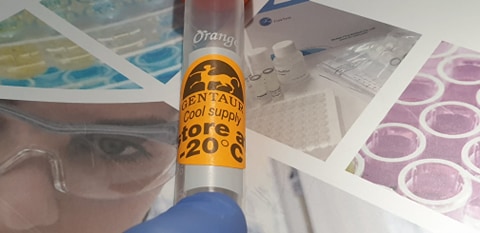The chicken antibodies , known as IgY or avian antibodies, first isolated from the yolk of the s end. XIX. Although IgY as a tool for biomedical research is not the most widespread option today, there is no doubt that it is gaining more ground among the scientific community. And this is due to the considerable advantages they provide in certain cases compared to polyclonal antibodies traditionally produced in mammals.
In this post we collect the top 5 reasons to use chicken antibodies against polyclonal antibodies (IgG) produced in rabbits, mice, goats, or other mammals.
1.- Phylogenetic difference between chickens and humans
Between humans and chickens there are 310 million years of evolution, which makes the difference between homologous proteins of these two species greater than that between human proteins with respect to their counterparts in other mammals.
This difference translates into a greater number of epitopes recognizable as “foreign” by the host, causing greater immunogenicity and specificity of the immune response.
In short, chicken antibodies (IgY) represent a clear advantage over polyclonal antibodies obtained in mammals in those cases in which the target protein is a highly conserved protein between species.

2.- Structural differences between IgY and IgG
Chicken antibodies show several structural differences from IgG, such as the presence of an additional constant domain in the heavy chain.
But without a doubt, the most significant difference is that chicken antibodies lack constant domain (Fc), with its consequent advantages:
- They do not activate the complement system.
- They do not interact with Fc receptors.
- They do not interact with endogenous mammalian anti-Fc antibodies.
3.- Stability
Chicken antibodies (IgY) have a greater stability against IgG, which allows them to be stored under refrigerated conditions (+ 4ºC) for longer periods of time (up to years versus days or months).
4.- Animal welfare
Although chicken antibodies (IgY) are also logically present in the blood of animals, they can also be isolated from egg yolks laid by immunized chickens.
This fact avoids the invasive and traumatic process that constitutes obtaining polyclonal antibodies by bleeding the animals, as well as their death after exsanguination.
5.- Low cost and higher performance
Maintaining chickens and chickens as research animals is more economical than other animals such as rabbits, goats, etc.
At the same time, the production of specific antibodies in chickens is much higher, obtaining a higher yield than in the case of mammals (up to 10-20 times more than the production of polyclonal antibodies in rabbit).
And to all this is added the shorter production time, since in the case of chicken antibodies specific IgY can be obtained in just 25 days.
In summary, the production of chicken antibodies involves:
- Lower cost.
- Higher performance.
- Less production time.
